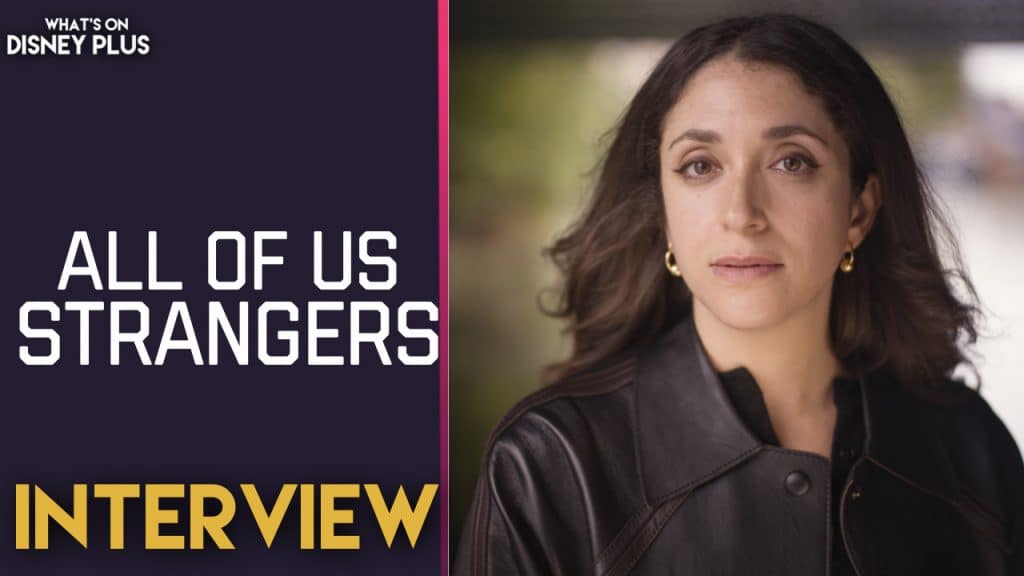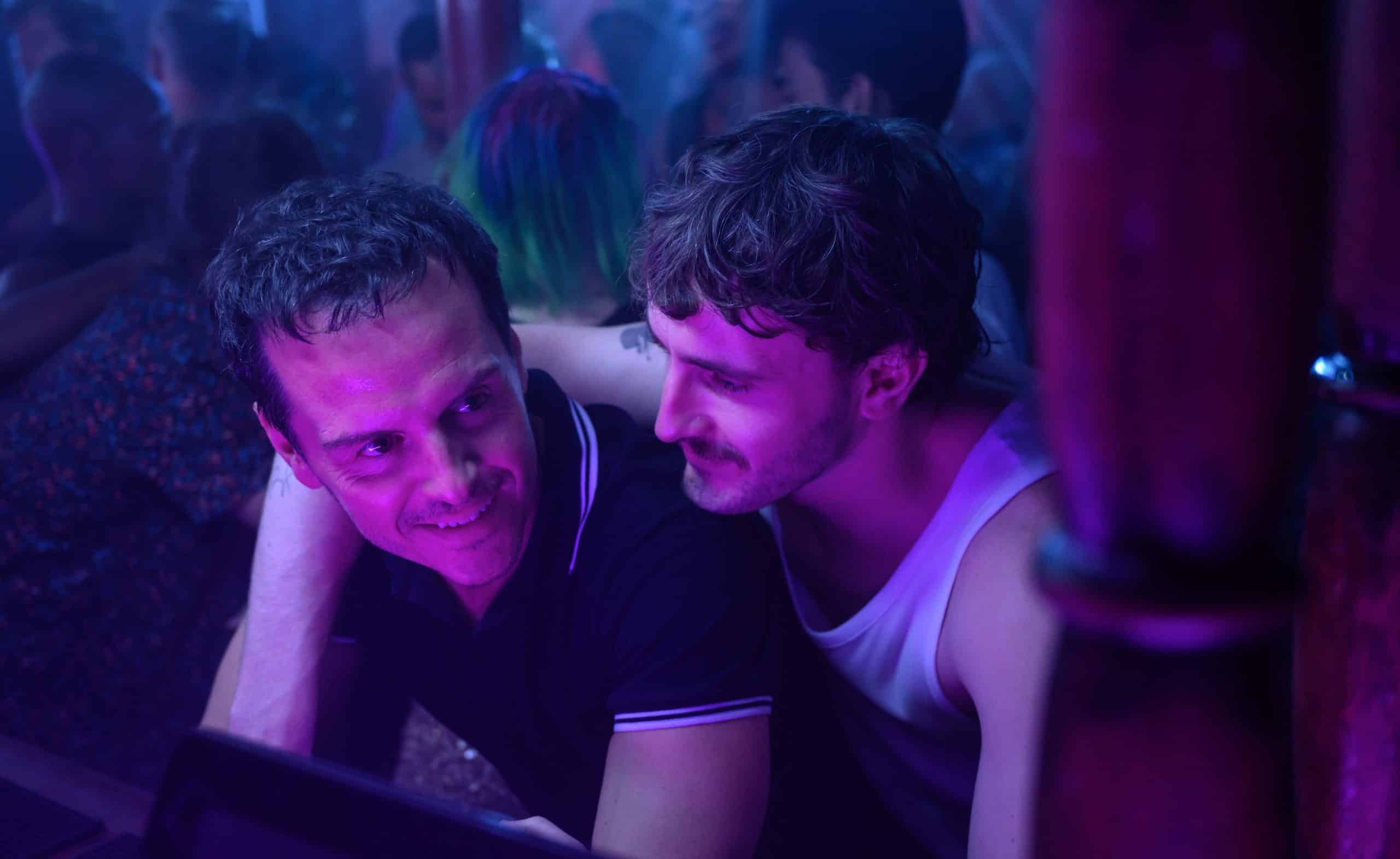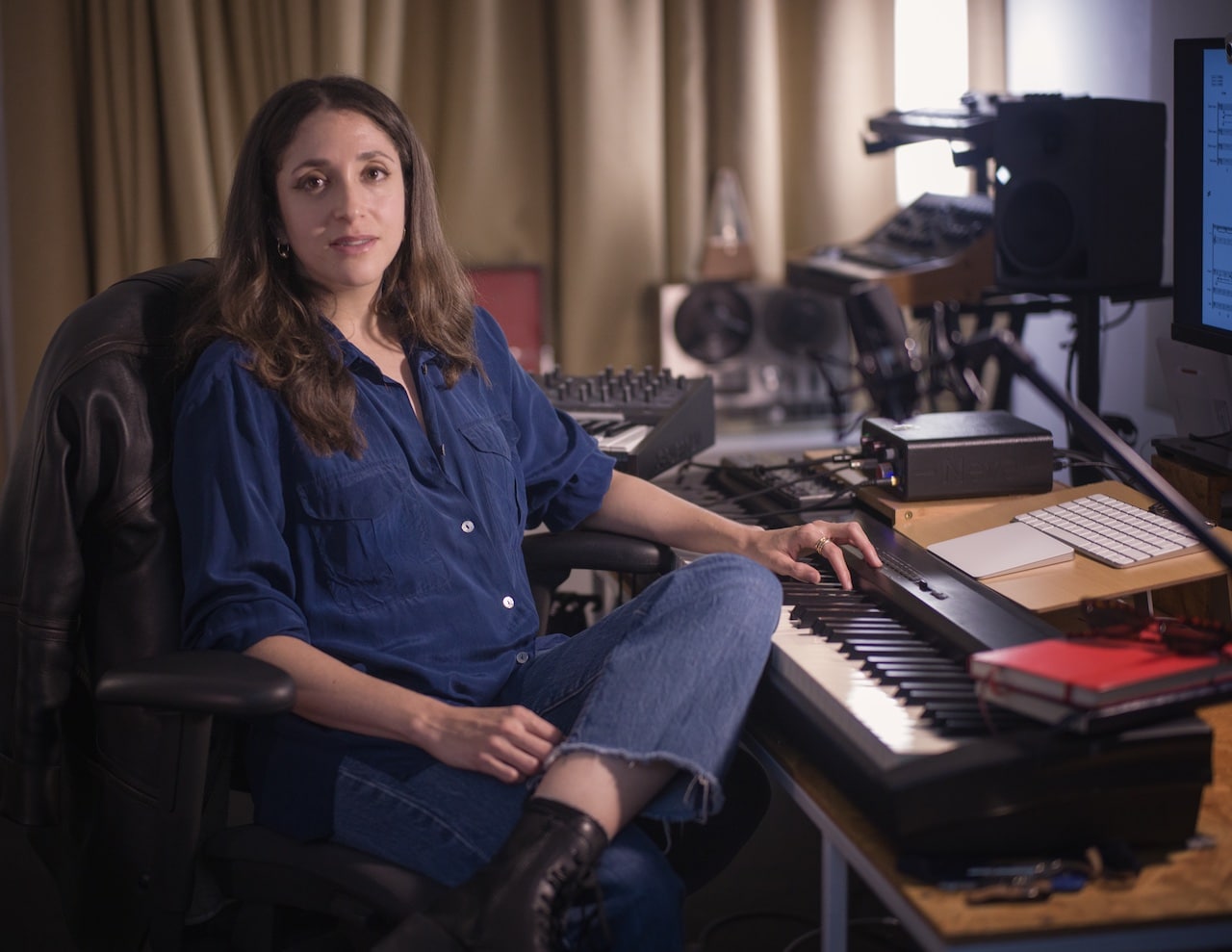
“All Of Us Strangers” Composer Emilie Levienaise-Farrouch | Exclusive Interview
Searchlight Picture’s latest movie is “All Of Us Strangers”, which follows Adam, a screenwriter drawn back to his childhood home, to discover a surreal revelation – his parents, portrayed by Claire Foy and Jamie Bell, seemingly frozen in time, living just as they were on the day they died 30 years ago.
I recently spoke with the film’s composer, Emilie Levienaise-Farrouch, who crafted a minimalist yet emotionally rich score that perfectly complements the film’s intricate storyline. This unique musical journey combines electronic elements with acoustic instruments, creating a human touch that enhances the viewer’s connection to the characters. The choice of instruments, including cello, violin, and analogue synths, imparts a warm and organic quality to the score. Emilie’s meticulous use of effects and digital techniques adds a layer of intrigue, carefully balancing on the edge of recognition without overshadowing the film’s human-centred essence.
Emilie’s deep emotional connection to the film’s narrative serves as the foundation for a delicate and dreamlike score that resonates with universal themes of acceptance, loneliness, and self-discovery. Her exceptionally resonant score for ‘All Of Us Strangers’ not only elevates the film’s narrative but also provides an unforgettable experience for viewers.
Check out the full interview below:
Could you give us a little bit of an introduction to how you got into making music for films?
So I guess I have the very average start of taking piano lessons at home with a piano teacher for quite a few years, and then realizing that experimental pop music is more something for it, that attracted me maybe a little bit more than classical for a while, especially artists like Björk or Radiohead, and the way they were creating little sound worlds in every one of their songs, and sculpting the sounds further than harmony or orchestration. It was so detailed. And therefore I wanted to go and do a university course that was also integrating studio time and studio composition, and looking at pop music as well and music business.
And the university where I did that happened to have a big film school, loads of film students, and I was a film nerd also growing up. And it turned out that quite a few of my friends were filmmakers, and we had a lot in common. And they were the one asking, “Would you like to do film scores for short films?” Which I loved doing. I really, really enjoyed the collaborative aspect and the storytelling aspect, and that’s what got me hooked. And then, yeah, I spent the following years both developing my own practice, trying to find my sound. The way I like to use instruments and just waiting for the right projects to get started properly. And the past five or six years, I’ve been very lucky to work on films that I could really be proud of.
Where did the inspiration for the music for “All of Us Strangers” come from?
It comes from, I would say the reactions I had the first time I saw a cut of the film, because I came on board doing the edit, rather than doing the script level and watching both the subtlety and the delicate nature of Andrew Scott’s performance, but also the boldness of all the complexity of the timeline, the amount of suspension, of disbelief it expected from the audience. So it’s such a difficult to explain film.
It’s such a specific film, but I knew that at the core of it, there was a lot of truth to it. So I thought the music should be as subtle as the film itself, but it should also have moment where it goes into genre element of sounds that are a little bit more challenging, a little bit more scary, and have an emotional depth, but not in overly lyrical or super emotive way, because we have characters who are quite restrained in their emotion.
And so that really influenced the more restrained composition. And in terms of sounds, it was … Well synthesizer made sense in a way also because we have songs that are from the ’80s. But I didn’t want the synths to be nostalgic or to be retro in any way. And then one thing that I personally really wanted to do was to have live instruments as well.
So I ended up having two cellos, two violins and me on the piano, but then we were talking with the director on how those instruments are lovely because they bring so much humanity and emotion in the playing, but we didn’t want the audience to recognize them too easily, because then it just has too many preconceived ideas that you associate with those instruments.
So I spent quite a bit of time working with different effect chains and granular synthesis, and just to try to find a way to twist the sound enough that it wasn’t immediately recognizable, but still kept that emotional impact of having players. And keeping the score quite intimate, because there’s four characters really in this film. So, it just felt right to have four core instrument groups to represent them to a certain extent.
What’s been one of your highlights working on the film?
Well, it’s a mix of two things. I was a fan of the director, so it was great to be trusted to become a collaborator. It was a very collaborative process that all the way until being allowed to spend seven days in the sound mix at the end and really integrate my music, rather than just being asked to stay off.
But also, it’s been wonderful as well to see the film with an audience, and to know that it’s touched people. Some people, because it’s really, really close to home in terms of the queer element of the storyline people. Some people because they recognize their difficulty in their relationship with their parents, or the difficulties of grieving. It’s just seeing the way it deeply touches people, and being able to work on a film that deeply affects people who watch it, is just such a privilege.
What was your biggest challenge working on the soundtrack?
It was, how do you make something that is still emotional but brings you into Adam? Because he is a character that is, especially at the start of the film, is how do you make sure that his deep desire for connection is present, even at moments where he’s closing himself to the world? So how to have a warmth and invite people into the story, and finding a balance between something that’s not intrusive, that doesn’t feed people any emotion, but still makes you drift off into his world?
So yeah, just finding the sound palette and how far you can push melody, how far you can push emotion without being manipulative. That was an interesting balance. And also, you have moments where you go into territory that gets a little bit scarier or a little bit darker, but you don’t want to make it a horror score, which I love making horror scores, but this was not the project. So it’s subtle, but it has to be right, and just finding that balance was tricky.
How long did it take you to put together the score for the film?
It’s difficult, I don’t remember exactly. Five months, four months, probably. We had a few changes of edits and tweaks that were more editing, but I would say four months to do the score itself.
Did you research 80s music for the film?
No, it was quite interesting because there was no real reference music in terms of we want to emulate this or that. It was just, even the ’80s song thing was more of a, let’s be mindful that it wouldn’t be jarring, but without trying to emulate it in any way. We’re not trying to make a nostalgic or period score in any way.
So the research was generally more in terms of crafting sounds, a selection of sound, a palette of sound that I could use throughout the film that would have enough variation to cover all the different emotions that we’re trying to cover, still feel cohesive as a whole, and yeah, the right amount of effect on live instrument. And all of that, I think that was the longest part of the process, just getting all those colors to paint with, and then you can start properly writing to picture.
Having worked with Searchlight Pictures, are there any other Disney-owned franchises that you’d like to take a stab at in the future?
It’s scary to say out loud. I wouldn’t mind doing something to do with the Star Wars universe, if they were doing something slightly more poetic and atmospheric. But yeah, it feels quite scary to put that out there.
“All Of Us Strangers” is coming out in cinemas in the United States on 22nd December 2023 and in the United Kingdom on 26th January 2024. Before arriving on Disney+ later in 2024.
Are you looking forward to watching “All Of Us Strangers”? Let us know on social media!





